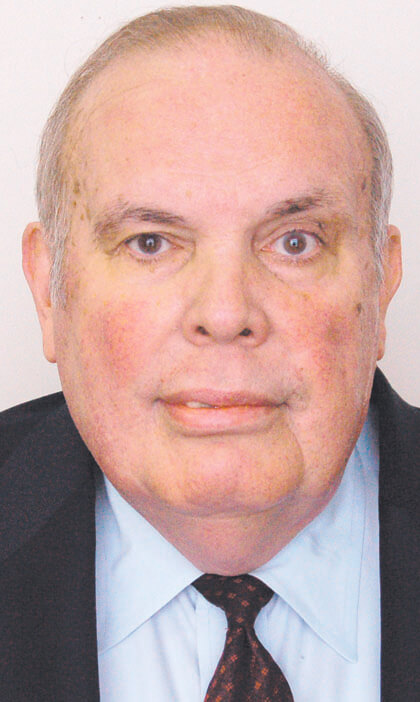By William Lewis
The U.S. Congress has recently passed the Military and Overseas Voter Empowerment Act, whereby state and local ballots have to be ready 45 days before an election so these ballots can be sent to overseas military personnel and returned in a manner that allows sufficient time for these ballots to be counted.
One of the main problems in the past has been legal challenges between opposing candidates, especially in primaries, so that ballots cannot be printed until the court decisions have been rendered as to which candidates will be on the ballot. This means that ballot printing is held up, delaying the process. Therefore, it is important that the Board of Elections be given more time. That would necessitate moving the primary election back to an earlier month.
It will be up to the state Legislature to conform with the new federal law regarding military voting by passing legislation to make changes in time for the 2012 elections. The election timetable for 2011 is set and will remain in place. It should be noted that during the American Civil War, then-President Abraham Lincoln made sure that military service members were able to vote in the 1864 presidential election. Today, our elected officials can do no less. Our voting process should be improved.
With special elections coming up in the 23rd and 27th state Assembly Districts in Rockaway Beach and Flushing, there is increased speculation as to when Gov. Andrew Cuomo will schedule these races. Will it be before July or in September? The prospective candidates are awaiting this information so they can actively start preparing for the campaigns.
Focusing on the 27th Assembly District, where Nettie Mayersohn resigned after serving 38 years in the Legislature — which, interestingly, is the same amount of time served by former state Sen. Frank Padavan — two candidates seem to be emerging at this time.
On the Democratic side, Michael Simanowitz is the leading candidate. As a graduate of Queens College who majored in political science, he has been a member of Mayersohn’s staff for 15 years. He is presently the chief of staff. In terms of issues, Simanowitz believes that constituent services are most important within the district by providing assistance in dealing with government agencies and other matters.
He mentioned child abuse prevention as an important matter that if elected he intends to deal with in the future. He also mentioned improving education procedures from the standpoint of increasing technology tools in the classroom.
The Republican candidate who will most likely be opposing Simanowitz is Marco DeSena, who has a rather impressive background considering he has a master’s degree from the London School of Economics. He has also been an adjunct college professor at Baruch College.
DeSena has been active in politics by participating in some recent major campaigns, including serving as campaign manager for David Malpass, who ran in the Republican primary for the U.S. Senate last year. He also served on Rudy Giuliani’s presidential committee in 2008 as deputy director of policy research and assistant speechwriter. He is presently a communications consultant.
As for issues, if elected DeSena intends to concentrate on improving the economy, especially in regards to increasing job growth. He believes that ethics in state government is important. In education, he wants to see some system developed where the best teachers are retained in the city public school system regardless of seniority.
The registration of this district favors Democratic candidates, but in a special election with a low voter turnout, it is sometimes difficult to predict what the election results will be.
Both candidates have stated a willingness to debate each other about the issues confronting the voters of their district and Queens as well. In this year of few elections, these special elections will be watched with interest as voting trends leading to the general elections next year develop.

































